| |

|
DeLoG NEWSLETTER
No. 48 – 03/2020
|
|

|
| |
|
|
| |
Dear Reader,
Welcome to issue No. 48 of the DeLoG Newsletter. As usual, this edition will showcase the Network’s most recent activities, provide news on upcoming events and courses and give you an overview of recent publications on
(1) local governance and decentralisation,
(2) fragility, post-conflict settings and migration,
(3) fiscal decentralisation and local finance,
(4) the 2030 Agenda and localising the SDGs as well as
(5) urban and territorial governance.
This edition’s "In Profile" section features Paolo Ciccarelli, the Head of the European Commission’s DG DEVCO C5 Unit on Cities, Local Authorities, Digitalisation and Infrastructure. He shares his insights from the 10th World Urban Forum (WUF10) and provides information on the EU Commission’s second call for "Proposals for Sustainable Cities".
His interview is followed by a summary of DeLoG’s own networking event at WUF10 focussed on “strengthening the local voice at the international level”.
In our "News from our Members and Partners" and "Additional News" sections we present the outcome document of WUF10, the "Abu Dhabi Declared Actions", as well as a number of calls, events and activities organised by our members and partners and other organisations such as The Global Festival of Action, UCLG’s Peace Price or UNITAR and UN DESA’s SDG learning series focussed on advancing SDG implementation, among others. Make sure to contact us if you would like to see your activities featured here in future.
Can’t get enough? Then feel invited to visit our DeLoG Website. Our "Knowledge" and "Event" sections provide you with access to even more new publications as well as current courses offered by our members and partners.
We hope you will enjoy this month’s issue and encourage you to forward our Newsletter to others.
All the Best from
Your DeLoG Team
Contact: info@delog.org |
|
|

© Paolo Ciccarelli 2020
|
|
In Profile – Paolo Ciccarelli, DEVCO C5 - Cities, Local Authorities, Digitalisation, Infrastructures
Paolo Ciccarelli is the Head of the EU's DG DEVCO C5 Unit for "Cities, Local Authorities, Digitalisation and Infrastructure". In his interview he introduces us to the work of his unit and presents their current workstreams and projects such as the Second Call for Proposals for Sustainable Cities. Moreover, he expands on possibilities of cooperation between DG DEVCO and DeLoG with regard to the Localisation of the SDGs as well as Urban and Territorial Governance. He concludes by sharing his thoughts on the empowerment of subnational governments in terms of accessing municipal finance to foster good urban governance.
|
| |
|
|
| |
|
|
|
|
|
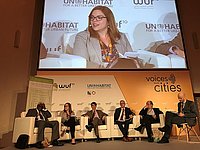
© DeLoG Secretariat 2020
|
|
DeLoG Participation at the 10th World Urban Forum with Networking Event: “If You Want to Go Far, Go with Many - Strengthening the Local Voice at the International Level”
The 10th World Urban Forum (WUF10), convened by UN-Habitat, was held in Abu Dhabi, United Arab Emirates, from the 8th to 13th of February 2020. In more than 540 official events participants exchanged their knowledge on sustainable urban development. The outcome, known as the "Abu Dhabi Declared Actions", includes commitments from international organisations, national, local and regional governments, the private sector, civil society, academia and others for the next two years and beyond to support the achievement of the SDGs.
Several DeLoG members and partner organisations hosted events and participated actively in sessions at WUF10. DeLoG and the European Commission, DG DEVCO hosted a joint networking session titled "If you want to go far, go with many: Strengthening the local voice at the international Level". Although perspectives differed, the panel was able to demonstrate that networks and associations of local authorities have the capacity to connect stakeholders, harmonise efforts and set agendas.
|
| |
|
|
| |
|
|
|
|
|
News from our Members and Partners
|
|
|
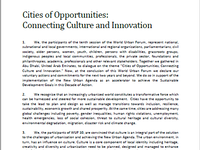
© UN Habitat 2020
|
|
The "Abu Dhabi Declared Actions". "Cities of Opportunities: Connecting Culture and Innovation”
Following the conclusion of the 10th World Urban Forum its host UN Habitat published the "Abu Dhabi Declared Actions". During the WUF10 attendees from national, subnational and local governments, international and regional organisations, civil society, local communities, the private sector, academia as well as other relevant stakeholders had the opportunity to exchange perspectives and opinions on the theme of the Forum: “Cities of Opportunities, Connecting Culture and Innovation.” On ten pages the "Abu Dhabi Declared Actions" outline the voluntary actions and commitments participants agreed upon for the next two years and beyond. The declaration's goal is to support the implementation of the New Urban Agenda as an accelerator and to ensure the achievement of the Sustainable Development Goals in the Decade of Action.
|
| |
|
|
| |
|
|
|
|
|
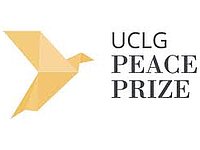
© UCLG Peace Prize 2020
|
|
UCLG Peace Prize 2019 goes to the Muncipality of Arsal
Following the World Conference on City Diplomacy in 2008, UCLG launched the UCLG Peace Prize to draw attention to the vital role of local governments for preventing conflicts, building bridges and dialogue after conflict and promoting peaceful environments. The award celebrates successful initiatives for conflict prevention, peace-building and post-conflict reconstruction undertaken by local governments and inspires others to implement such activities.
While the first edition of the Peace Prize (2016) was awarded to the Municipality of Kauswagan (Philippines), the second edition (2019) was recently presented to the Muncipality of Arsal for its use of mediation to foster co-existence, peace-building and conflict prevention.
|
| |
|
|
| |
|
|
|
|
|
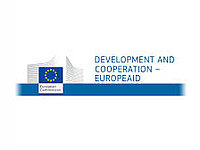
© European Union 2020
|
|
2020 Call for Proposals of the Partnership for Sustainable Cities
EuropeAid has announced its 2020 Call for Proposals of the Partnership for Sustainable Cities. The programme aims to foster relationships among local authorities to strengthen good urban governance, social inclusiveness in cities and to lay the foundations for prosperity and innovation.
Following constructive feedback from the first call in November 2018, new guidelines have been developed. The submission deadline is the 27th of March 2020 at 12:00 pm (Brussels time). Questions regarding the call can be directed to europeaid-167744@ec.europa.eu.
|
| |
|
|
| |
|
|
|
|
|
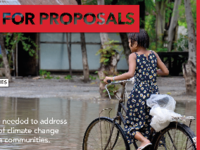
© Cities Alliance 2020
|
|
Call for Participation - Stronger Partnerships: Local Innovations for New Climate Realities in Cities
Earlier this month, Cities Alliance launched a call for innovative approaches to enhance climate resilience in communities. In recognition of the needs of the most vulnerable in society, the call places special emphasis on informal settlements. The effects of global warming in form of heavy rainfalls, droughts, coastal erosion, etc., are particularly devastating to these communities. Cities Alliance invites interested parties to submit adaptive concepts, products and processes focussed on supporting the community level or projects enhancing the dialogue between local communities and local governments to apply for the grant money (25.000 USD to 30.000 USD) by the 30th of March 2020.
|
| |
|
|
| |
|
|
|
|
|
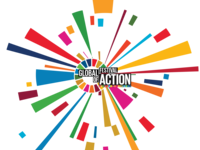
© UN SDG ACTION CAMPAIGN 2020
|
|
Global Festival of Action
In light of the rapidly evolving COVID-19 outbreak the SDG Global Festival of Action has been postponed. New dates will be announced as soon as possible.
|
| |
|
|
| |
|
|
|
|
|
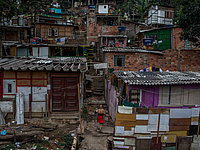
© Victor Moriyama/Getty Images 2018
|
|
The Future of Development Is Local
Foreign Policy (2020)
Time and time again development efforts have been criticised for overlooking the needs of the most marginalised and vulnerable. In 2015, this call for more inclusive development was met by the successor of the Millennium Development Goals, the 2030 Agenda and its 17 SDGs. To "Leave No One Behind" (LNOB) is at the core of the Agenda. The widely discussed article "The Future of Development is Local" provides evidence and precious insights into the important role of local governments and municipalities for the implementation of the SDGs. Moreover, it outlines how these entities can contribute to local development, in particular in terms of financing, and how their inclusion can guarantee that the 2030 Agenda's main principle of LNOB is met.
|
| |
|
|
| |
|
|
|
|
|
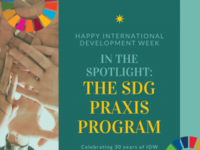
© BCCIC 2019
|
|
BCCIC’s New SDG Praxis Programme
BCCIC (2020)
From the 2nd to the 8th of February 2020 Canada celebrated its 30th International Development Week. BCCIC used the occasion to launch its new SDG Praxis Programme. The aim of the Programme is to carve out the transformational potential of the Sustainable Development Goals by focusing on the nexus between theory and practice. Among other questions the initiative will explore how the international community enacts, embodies and practices SDG implementation to realise positive change. As part of the Programme practical examples and experiences will be documented and shared. In addition, learning opportunities to develop skills in working with the SDGs for transformational change will be offered. Related actions and events such as webinars will be regularly announced on BCCIC's website.
|
| |
|
|
| |
|
|
|
|
|
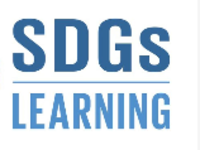
© UNITAR/UN DESA 2020
|
|
SDG Learning, Training and Practice - Call for Workshop Proposals!
The Division for Sustainable Development Goals, at the United Nations Department of Economic and Social Affairs (UN DESA/DSDG) and the United Nations Institute for Training and Research (UNITAR) are currently organising the 2020 edition of the SDGs Learning, Training & Practice series. The series will consist of capacity building and knowledge workshops held at the High-Level Political Forum and will feature speakers and experts from academia and other sectors on crucial topics related to the implementation of the SDGs under review in 2020. Course proposals by Government entities and organisations accredited to participate in the High-Level Political Forum are now being accepted. The submission deadline is the 31st March 2020.
|
| |
|
|
| |
|
|
|
|
|

© WRI Ross Cities 2020
|
|
WRI Ross Center Prize for Cities 2020-2021 – Call for Applications
Using the momentum of the 10th World Urban Forum, the WRI Ross Center for Sustainable Cities has launched its second cycle of the WRI Ross Center Prize for Cities. All cities engaged in projects promoting transformative change to tackle the climate crisis and urban inequality are invited to apply. The winner will be awarded 250,000 USD. The four runner-ups are given 25,000 USD each. Last year’s prize was awarded to Amend for its School Areas Road Safety Assessments and Improvements (SARSAI) program which analyses school routes and creates corridors of improved safety between children’s homes and their schools in African cities. This year the theme of the competition is "Inclusive Cities for a changing climate". Applications will be received until the 7th of May 2020.
|
| |
|
|
| |
|
|
|
|
|
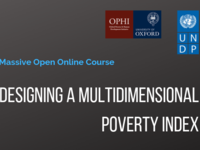
© Learning for Nature 2020
|
|
Designing a Multidimensional Poverty Index
When: 16 March - 17 April 2020
-
Where: Online
-
Apply by: Registration open
|
| |
|
|
| |
|
|
|
|
|
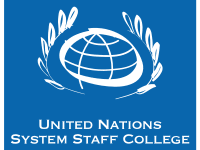
© UNSSC 2020
|
|
Results-Based Management to Support Implementation of the 2030 Agenda
When: 27 - 30 April 2020
-
Where: Bonn, Germany
-
Apply by: 19 April 2020
|
| |
|
|
| |
|
|
|
|
|

© UNSSC 2020
|
|
Circular Economy and the 2030 Agenda
When: 11 May - 12 June 2020
-
Where: Online
-
Apply by: 1 May 2020
|
| |
|
|
| |
|
|
|
|
|
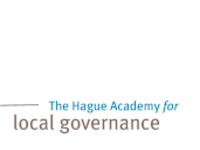
© The Hague Academy for Local Governance 2020
|
|
Climate Adaptation and Local Resilience
When: 1 - 12 June 2020
-
Where: The Hague, Netherlands
-
Apply by: 24 April 2020
|
| |
|
|
| |
|
|
|
|
|

© Swisspeace 2020
|
|
Conflict Sensitivity Course
When: 10 - 12 June 2020
-
Where: Basel, Switzerland
-
Apply by: 31 March 2020
|
| |
|
|
| |
|
|
|
|
|
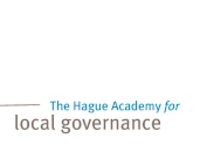
© The Hague Academy for Local Governance 2020
|
|
Integrity and Anti-Corruption
When: 15 - 26 June 2020
-
Where: The Hague, Netherlands
-
Apply by: 8 May 2020
|
| |
|
|
| |
|
|
|
|
|
Studies and Publications
|
|
|
Local Governance and Decentralisation
|
|
|
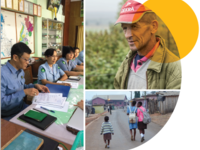
© VNG International 2019
|
|
Towards Better Futures for All: For Gender Sensitive Local Governance
VNG International (2019)
Societies become more resilient when everybody is given a chance to speak up. Therefore, promoting gender equality enhances sustainable development. Taking this into account, VNG International actively incorporates approaches aimed at securing equal representation of men and women in all five of its fields of expertise. This publication provides insights into the reasons why gender sensitive approaches are crucial for the success of local governance.
|
| |
|
|
| |
|
|
|
|
|
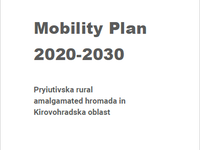
© U-LEAD 2019
|
|
Mobility Plan 2020-2030
U-LEAD (2019)
Accessible and sustainable mobility is central to decentralised governance structures and can contribute notably to a greater exchange of knowledge and enhanced openness between citizens. Therefore, GIZ, in cooperation with other European states, supports the U-Lead programme. Its aim is to promote transparent, decentralised, population-oriented multilevel governance. The Mobility Plan 2020-2030 demonstrates how sustainable mobility can be achieved through the involvement of different political and civil stakeholders. It provides an overview of U-LEAD’s conducted activities in the Ukrainian community Pryiutivska located in the region of Kirowohrad.
|
| |
|
|
| |
|
|
|
|
|
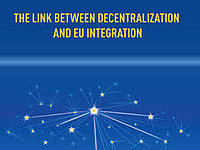
© New Europe Center, ZOiS 2020
|
|
The Link Between Decentralization and EU Integration
New Europe Center/ZOiS (2020)
The Ukrainian decentralisation process poses a key challenge to the country’s integration into the European Union. But how can the EU actively support EU membership candidates in fulfilling the EU’s requirements? Together the New Europe Center and the Centre for East European and International Studies (ZOiS) explore this question. Their regional analysis conducted by local experts in combination with a comparative analysis including interviews with key regional stakeholders illustrates in detail which concepts have been successful thus far and what crucial obstacles remain.
|
| |
|
|
| |
|
|
|
|
|
Fragility ● Post-conflict settings ● Migration
|
|
|
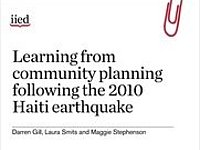
© IIED 2020
|
|
Learning from Community Planning Following the 2010 Haiti Earthquake
IIED (2020)
This working paper summarises the shared experience of 50 international organisations that worked together following the Haiti earthquake in 2010 to improve the conditions of informal settlements and to implement far-reaching institutional changes in planning policies in Haiti. The paper contributes to the emerging literature of urban area-based planning in humanitarian crises. In addition, it grants access to a digital archive that comprises all data analysed for the paper and provides a starting point for staff involved in crisis-recovery, urban planning education and policy development to advance new approaches to tackle urban crises.
|
| |
|
|
| |
|
|
|
|
|
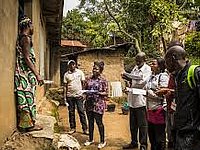
© World Bank/Vincent Tremeau 2019
|
|
Beyond Local and International: Humanitarian Action at the Margins
ODI (2019)
Discussing roles instead of stakeholders: That is the approach of this briefing note published by ODI in December 2019. It examines the potential complementarity between international humanitarian and already existing community action. It considers the role of people working at the margins of humanitarian response and relates these insights to research provided by the four core aspects of the HPG’s local humanitarian agenda: capacity and complementarity, dignity in displacement, humanitarian financing and the protection of civilians.
|
| |
|
|
| |
|
|
|
|
|
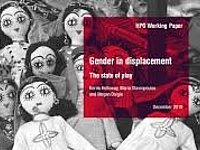
© ODI 2019
|
|
Gender in Displacement: The State of Play
ODI (2019)
Are crises enhancing gender inequalities? Does displacement affect women or men more severely? Does migration contribute to a shift in power dynamics between the sexes? ODI’s paper "Gender in Displacement: The State of Play" provides important answers to these and many other questions concerning changing gender roles during crises and to what extent and how humanitarian programming has addressed these crucial issues. A critical assessment of the latter demonstrates where further action is needed by international humanitarian organisations to tackle the problem of gender inequality.
|
| |
|
|
| |
|
|
|
|
|
Fiscal Decentralisation ● Local Finance
|
|
|
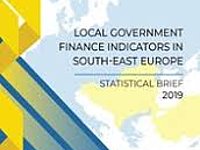
© NALAS 2019
|
|
Statistical Brief: Local Government Finance Indicators in South East Europe
NALAS (2019)
Published by NALAS in 2019, this report provides and compares compressed quantitative data on local government performance, public revenue, expenditure and investments in South-East Europe. Divided into two parts, Section One presents first hand-data on the status of national and subnational government finance in the region. Section Two in turn focusses on national and subnational spending patterns between 2006 and 2018.
|
| |
|
|
| |
|
|
|
|
|
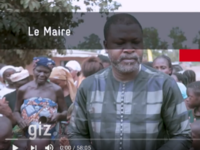
© GIZ 2019
|
|
The "Le municipal foundation" and GIZ Present "Le Maire"
GIZ (2019)
In November 2019 the foundation "Le municipal" and the GIZ Programm "Support to Decentralization and Local Development" (PDDC) published the movie "le Maire". "Le Maire" is set in the fictional Republic of Zonga and describes the challenges and successes of the mayor of the city of Dassou Roger Agossou. In the movie Dassous's local community urgently needs to increase its own revenue in order to improve public performance and meet the guiding principle of the 2030 Agenda "to leave no one behind". During the implementation of the municipal development plan, Roger Agossou is faced with a number of challenges. These ultimately make him realize that successfull project implementation requires the consideration of all three dimensions of sustainability (principle of integrated approach) as well as the needs of all stakeholders. Moreover, he recognizes that everyone is responsible for contributing to sustainable development (principle of shared responsibility).
|
| |
|
|
| |
|
|
|
|
|
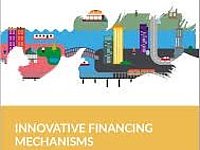
© IUC/EU 2020
|
|
IUC Webinar: Promoting Innovative Financing Solutions for Cities
IUC/European Union (2020)
Both cities and municipalities are highly affected by rapid urbanisation. In order to better address these urban challenges and account for ecological and economic transformation as well as local circumstances alternative financial instruments need to be developed. In January 2020, the International Urban Cooperation (IUC) organised a webinar on appropriate financing mechanisms. This publication presents the proposed financing tools. Moreover, it showcases examples from Indonesia, Sweden and India.
|
| |
|
|
| |
|
|
|
|
|
2030 Agenda ● Localising the SDGs
|
|
|
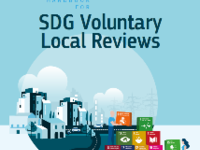
© European Commission 2020
|
|
European Handbook for SDG Voluntary Local Reviews
European Commission (2020)
Launched at the 10th World Urban Forum in Abu Dhabi, the European Handbook for SDG Voluntary Reviews presents policy makers, researchers and practitioners with an innovative framework specifically designed for conducting Voluntary Local Reviews (VLRs) in European cities. Initially introduced to recognise the key role of cities for promoting sustainable development, VLRs have become an important means to track the progress of local SDG implementation. To aid this process, the Handbook provides guidance to European cities by presenting useful examples of official and experimental indicators to devise effective local SDG monitoring systems tailored to local circumstances.
|
| |
|
|
| |
|
|
|
|
|
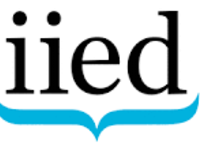
© IIED 2020
|
|
Profit with Purpose: The Role of Business in Achieving Sustainable Development
IIED (2020)
The International Institute for Environment and Development (IIED) has recently launched a new blog and interview series to explore how the activities of entrepreneurs can contribute to sustainable development. Recognizing economic activities as driving factors for fair employment, sustainable energy consumption or circular production chains, among others, these blogs and interviews examine how financial and business communities are seeking to balance profit with social and environmental impact and are thereby contributing to SDG implementation.
|
| |
|
|
| |
|
|
|
|
|

© World Economic Forum 2020
|
|
Global Gender Gap Report 2020
World Economic Forum (2019)
Taking into account that the effectiveness of many policies can be enhanced by respecting and implementing gender-sensitive approaches, gender parity has been included as a core principle in most of the international agendas for sustainable development. But as cultural and socio-economic conditions differ between countries, so does the progress of gender-sensitive policies. The Global Gender Gap Report 2020 provides a detailed overview of the state of play in different countries and highlights how addressing gender gaps today can affect professions in future.
|
| |
|
|
| |
|
|
|
|
|
Urban and Territorial Governance
|
|
|
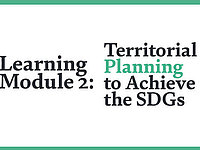
© UCLG 2019
|
|
SDG Learning Module 2: Territorial Planning to Achieve the SDGs
UCLG (2019)
Based on UCLG’s Training for Trainers to localise the SDGs approach, this learning module aims to integrate the SDG principles into local development planning processes. It proposes an active learning format for knowledge sharing workshops and sets forth interactive exercises that allow trainers to include their own creative ideas. The workshop format has been tried and tested by three cities, including Mindelo (Cape Verde), Lleida (Spain) and Madrid (Spain).
|
| |
|
|
| |
|
|
|
|
|

© ICLEI 2019
|
|
New Fact Sheets from Across Europe Share Best Practice Knowledge on Sustainable Urban Mobility Planning
ICLEI (2019)
In collaboration with many different partners around Europe, ICLEI has been actively promoting the issue of Sustainable Urban Mobility Planning (SUMP). This publication draws on a range of experiences, including examples from the city of Malmö in Sweden to Thessaloniki in Greece, to propose new solutions for SUMP, including Clean Air Zones, forecasting travel models, interactive maps for cycling and walking or new road space allocation policies. The presented best-practice examples aim to encourage more regions across Europe to implement and improve SUMP initiatives.
|
| |
|
|
| |
|
|
|
|
|
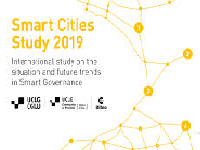
© UCLG 2019
|
|
Smart Cities Study 2019
UCLG (2019)
What characterizes a smart city? How can smart cities be designed and implemented? How does Smart Governance work? UCLG’s Community of Practice on Digital Cities' third edition of the Smart Cities Study identifies both open government as well as the advancement of strategic management as key factors in the transformation of smart cities. Overall the insights from 24 cities are used to provide concrete recommendations on how to improve Smart Governance by cities, both in the field of open government and in advanced strategic management.
|
| |
|
|
| |
|
|
|
|
| |
|
|
| |
For access to even more publications on local governance and
decentralisation, fragility, post-conflict settings and migration, fiscal
decentralisation and local finance, the 2030 Agenda and localising
the SDGs or urban and territorial governance make sure to visit the
"Knowledge" section of our DeLoG Website or follow us on Twitter,
where we feature one new publication per day!
|
|
|































